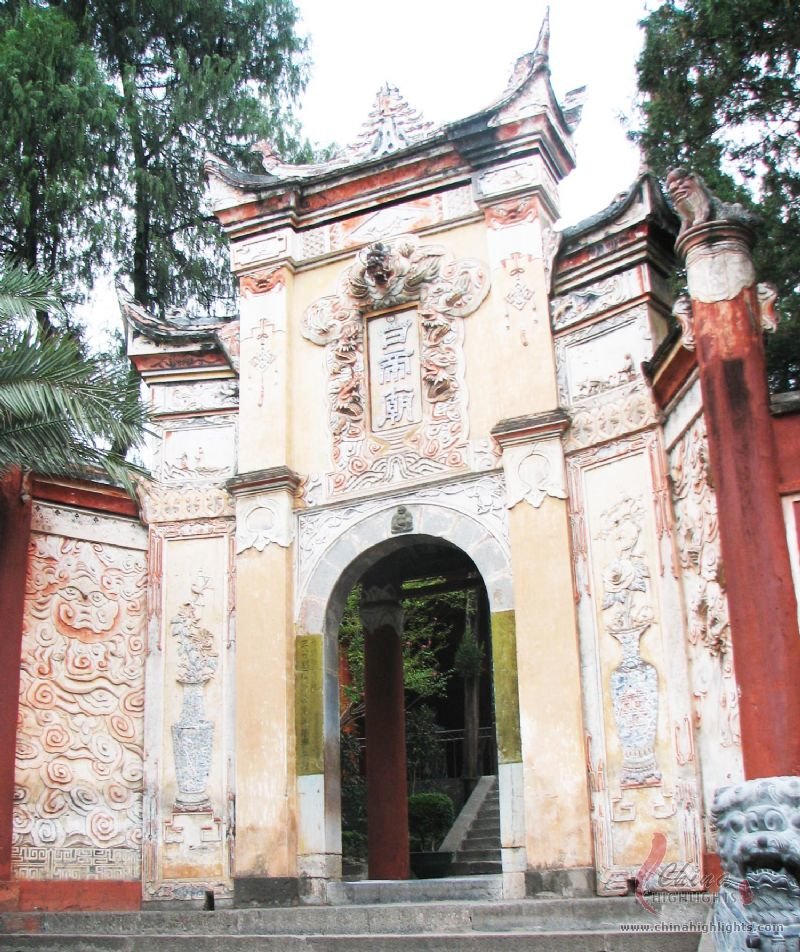Baidicheng
The "old town " Baidicheng (Chinese白帝城 风景区; Baidicheng fengjingqu ), a cultural monument in the east of the circle Fengjie, Chongqing, about 10 km from the seat of county government. As a " landscape and recreation area Baidicheng " it was founded in October 2004. It has an area 53.7 km ² and more than 37,000 inhabitants. Administratively located Baidicheng is composed of a population community and eight villages that belong partly to the greater community of Yong'an, in part, to greater community Baidi.
Main attraction of the landscape and recreation area is Baidicheng, an ancient urban settlement on the northern bank of the Yangtze River in China. The name literally means "City of the White Emperor ". It is said that the area was once surrounded by a white mist that would have given him a mysterious but peaceful appearance, just as an emperor should look like. It also means that some with a white dragon from there they saw coming, the symbol of the Emperor, and the warlord Gongsun Shu (公孙述) (-? 36) thought this was an auspicious sign and declared himself emperor of Chengjia. He founded the city and named himself the White Emperor. The buildings of the old city are today because of the Three Gorges Dam on a small island, which is easily accessible from the city center of Chongqing from the ship.
Baidi is also known as the "City of the seals " because many poets, including the famous Li Bai, more than they wrote. Some, such as Du Fu lived there for a while.
In Baidi Liu died at, the first ruler of the kingdom of Shu Han of the Three Kingdoms period.
Since 2006, stands the old town on the monument list the People's Republic of China.









.jpg)
